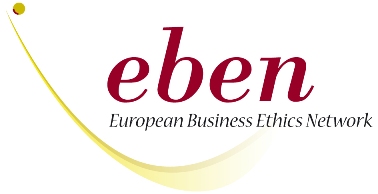Rationale
The international business community can count on many men and women of great personal honesty and integrity, whose work is inspired and guided by high ideals of fairness, generosity and concern for the authentic development of the human family. I urge you to draw upon these great human and moral resources and to take up this challenge with determination and far-sightedness. Without ignoring, naturally, the specific scientific and professional requirements of every context, I ask you to ensure that humanity is served by wealth and not ruled by it.
Pope Francis, Letter to the Executive Chairman of the World Economic Forum
(January 17, 2014)
Christian ethics and spirituality, essentially based on fellowship with Jesus Christ, favor these high ideals of fairness, generosity and concern for human development mentioned by Pope Francis. Such Christian spirituality, inherent to being a Christian, can take several forms. In fact, throughout the history of the Church, many schools of spirituality have developed. However, the elaboration of spirituality in the work and business context only began during the middle of the last century, and academic research in this field is still incipient. In contrast, Christian ethics in economics and business has a long tradition. It provides a view of the human being and society as well as an explanation of the medial function of business and the economy. This intertwining of Christian faith and reason provides theoretical perspectives and practical guidelines for business and its management.
Christian thinkers have made significant contributions to ethical reflections on business since the medieval period and have continued to do so throughout history, up to and including the current movement of Business Ethics. Topics such as fairness in contracts, the ethics of business transactions, and ethics in decision-making were developed by Christian thinkers from the thirteenth century onwards. Certain aspects of financial ethics were treated as early as the fourteenth century, and in the sixteenth century, theologians such as Francisco de Vitoria and Bartolomé de las Casas provided a strong defense of universal human rights, which had subsequent implications for labor. Since the nineteenth century, a personalistic view of work within the organization and as the basis for labor rights has been presented and defended by the Catholic Church, allowing Christian thinkers during the twentieth century to introduce new perspectives and topics: business as a community of persons, the common good as the criterion for the legitimization of business and the market, management as service, the centrality of human development, and responsibility in consuming and in respecting the environment, among other themes. In addition, a better theological understanding of certain aspects of business, including topics such as human work, the nature of business, a respect for the integrity of creation, human ecology, and the vocation of the business leader have been further elaborated.
In the last few decades, a good number of academic works on ethics in business based on Catholic Social Teaching (CST) and other Christian perspectives have been published. Furthermore, empirical research has paid attention to the influence of religiosity, including the Christian faith, on several aspects of business; comparative studies on the behavior of Christians and others, and on the influence of Christian spirituality in leading businesses are evidence of a growing interest in this theme. However, the academic development of the importance and influence of Christian ethics and spirituality in leading organizations, in close dialogue with current organizational and management approaches, is still quite limited. The aim of this Colloquium is to promote such research while seeking innovative developments in continuity with the Christian tradition. Both conceptual and empirical papers will be welcomed.
A collection of selected papers will be published in a special issue of the Journal of Business Ethics, after a pre-selection by the Organizing Committee and a double-blind review process. The pre-selection process will consider both the academic quality of the paper and the proximity to the general theme of this Colloquium.
Organizers:
- Chair of Business Ethics, IESE Business School, University of Navarra
- Markets, Culture and Ethics Research Centre, Pontifical University of the Holy Cross
- School of Business and Economics, Catholic University of America
